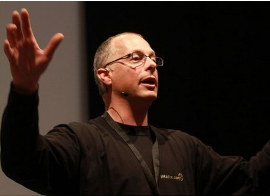
 Summary: The idea that patents for the sake of patents (or increasing the overall number of patents) is somehow beneficial to everything these patents touch is misguided and detrimental not only to practitioners but also to the public whose work contributes to
Summary: The idea that patents for the sake of patents (or increasing the overall number of patents) is somehow beneficial to everything these patents touch is misguided and detrimental not only to practitioners but also to the public whose work contributes to
THE software development community -- be it proprietary or Free software developers -- rejects software patents. Just ask almost any software developer (not the same as some CEO of a software company or someone from its legal department).
"Myself, as a software developer, can honestly say that I've never come across a single software developer who defends software patents."Patents in their own right don't promote innovation. They can, in some cases, protect inventors from blatantly obvious ripoffs, but that depends on the area/discipline of that invention/discovery.
Timothy B. Lee, a longtime opponent of software patents (he wrote many articles on that subject), published "Patent disputes stand in the way of radically safer table saws" a few days ago. The headline has been changed since (probably the editor decided to 'botch' it), but the contents of the article are still the same:
In 2015, 4,700 people in the US lost a finger or other body part to table-saw incidents. Most of those injuries didn't have to happen, thanks to technology invented in 1999 by entrepreneur Stephen Gass. By giving his blade a slight electric charge, his saw is able to detect contact with a human hand and stop spinning in a few milliseconds. A widely circulated video shows a test on a hot dog that leaves the wiener unscathed.
[...]
Beyond a possible CPSC mandate, the other big danger facing table-saw manufacturers who don't adopt the new technology is product-liability lawsuits.
Before the invention of the SawStop technology, power-tool makers could argue that table saws were just an inherently dangerous product, and customers accepted the risk when they chose to buy and operate them. But now that technology like SawStop exists, plaintiffs have begun to argue that the absence of the technology constitutes a dangerous design defect.
A Massachusetts plaintiff won a lawsuit with this argument in 2010. There have been others since then, including one in Illinois in 2014 and another in Pennsylvania in 2017.
"The USPTO continues to grant software patents, but a lot of these -- at least those that get tested outside the USPTO -- get invalidated."That brings us to this new press release, which speaks of "patent-protected software" even though such a concept is hardly enforceable by courts anymore. US courts are not tolerating software patents (or barely find merit in these). And sure, even though US courts are trashing a lot of US patents the USPTO continues granting them by the truckloads (Patently-O has just projected another record high). It's not as though real, actual innovation magically doubled in a decade or two, right? It's just that "patentism" has become like somewhat of a religion whose core value is, "if we grant more patents, we'll be in a position of advantage" (rather than a trolling Armageddon). This new article from Ireland (found last night) speaks of software patents that are truly hurting Irish software companies. What good is that for the Irish economy?
Hopefully, if it's not too late, software patents in Europe can be stopped (no more grants) and revoked (invalidating existing ones). The USPTO continues to grant software patents, but a lot of these -- at least those that get tested outside the USPTO -- get invalidated. A simple extrapolation would say that perhaps hundreds of thousands of US patents are therefore zombies (or "dead men walking").
"The USPTO, as we have been saying a lot over the past few weeks, should simply stop granting software patents."Suffice to say, the patent microcosm is not happy about this. Today in The National Law Review there's this ridiculous article from Steven Lundberg, a self-serving software patents lobbyist and patent profiteer (he created nothing, except a blog that promotes software patents). He speaks of that laughable 'protest' we mentioned yesterday and says this: "One of the great oddities of the U.S. patent system is the relative ease with which the rules allow a duly examined patent to be cancelled by the PTAB. [...] I am hoping that in the future a better job can be done in examining a patent in the first place so that there isn’t arguably a “double standard” for patentability – the everyday examination standard used to examine patents prior to issuance, and the PTAB standard. It would be far better to not issue a patent in the first place, then to issue it and then have a change of heart later, after millions of dollars have been invested in the assumption the patent is valid, at least in the eyes of the USPTO."
We can agree with that to a degree. The USPTO, as we have been saying a lot over the past few weeks, should simply stop granting software patents. Otherwise, the perceived legitimacy of US patents will fall so sharply that the Office will implode (like the EPO right now, where patent applications are declining in number). ⬆